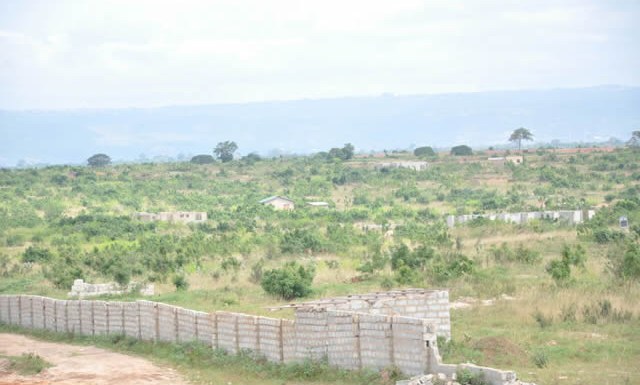Ghana is expected to realise the full benefits of its land reforms agenda in the next 20 years from the start of its implementation.
This is the projection made by the Senior Lecturer at the University of Ghana School of Law, Kwame Gyan.
Speaking to Newsfile host, Samson Lardy Anyenini Saturday, he said Ghana's land reforms which began in 2003, are long term initiatives whose benefits will take time to manifest.
"The World Bank put in a lot of money to help Ghana fix the land administration system. But land reforms are long term national objectives. If you want to reap the dividends of a proper land reform agenda, you should be looking towards not less than two decades before you can really feel that something has changed on the ground. You are not looking at anything below 15 years," he said.
Mr Gyan made these comments on the hills of the passage of the new Land Act 2020 (Act 1036).
This Act is to help streamline the land administration system by introducing a clear, coherent, and consistent policies and laws supported by appropriate institutional structures.
Prior to the enactment of the new law, Ghana in 2014 commenced the implementation of its Land Administration Reforms.
The objective was to undertake land policy and institutional reforms and key land administration pilots for laying the foundation for a sustainable decentralised land administration system that is fair, efficient, cost effective and ensures land tenure security.
The Senior Lecturer said that the reforms have made it possible for the development of institutional framework to harmonise land policies and to restructure public land administration agencies into a One-stop-shop, the Lands Commission, for efficient delivery of services.
"Out of the reforms, we got a new legal regime for the lands sector. So in 2008, a new legislation, the Lands Commission Act was passed and assented to by the President. What the Lands Commission Act did was to bring together the previously separate and disparate institutions that managed lands."
"In the past, we had the Lands Commission, Land Registry, Land Valuation Board, Office of the Administration of Stool lands, the Deeds Registry, Survey Department and Lands Title Registry. All these agencies had their own legal setups, their own leaderships and records. With Act 76, 2008, these agencies were brought together with the Administrator of Stool Lands and the Department of Town and Country Planning," Mr Gyan explained.
Although the land sector is sudden with several litigations, direct confrontations resulting in maiming and deaths, the Land Administration expert believes Ghana has made considerable progress in land service delivery and it will require more patience and the active participation of all stakeholders to succeed in streamlining the land management system.
Latest Stories
-
CSA blacklists 40 loan apps for harassment and data abuse
19 minutes -
Armwrestling and Fire Service forge development partnership
54 minutes -
Fuel prices to fall significantly from June 1, 2025
1 hour -
Pan-African Progressive Front rolls out plan to unite Africa
1 hour -
Muslim women urged to help curb substance abuse in Zongo communities in Aflao
2 hours -
2025 HitzFMRepUrJersey records massive success
3 hours -
Death toll from Nigeria flash floods rises to 151
3 hours -
Kumasi, Tamale airports extend operational hours
3 hours -
At least seven dead after two Russian bridges collapse
3 hours -
Man United sign Matheus Cunha from Wolves
3 hours -
Ofori-Atta faces INTERPOL Red Notice if he defies OSP deadline
3 hours -
Thomas Partey Tournament returns to unearth Ghana’s next football stars
3 hours -
Police arrest 2 suspects in gruesome murder at Tema
4 hours -
38 suspects arrested as IGP orders raids on galamsey hotspots in 3 regions
5 hours -
BlowChem announces price reductions on beverages, effective June 1
6 hours

